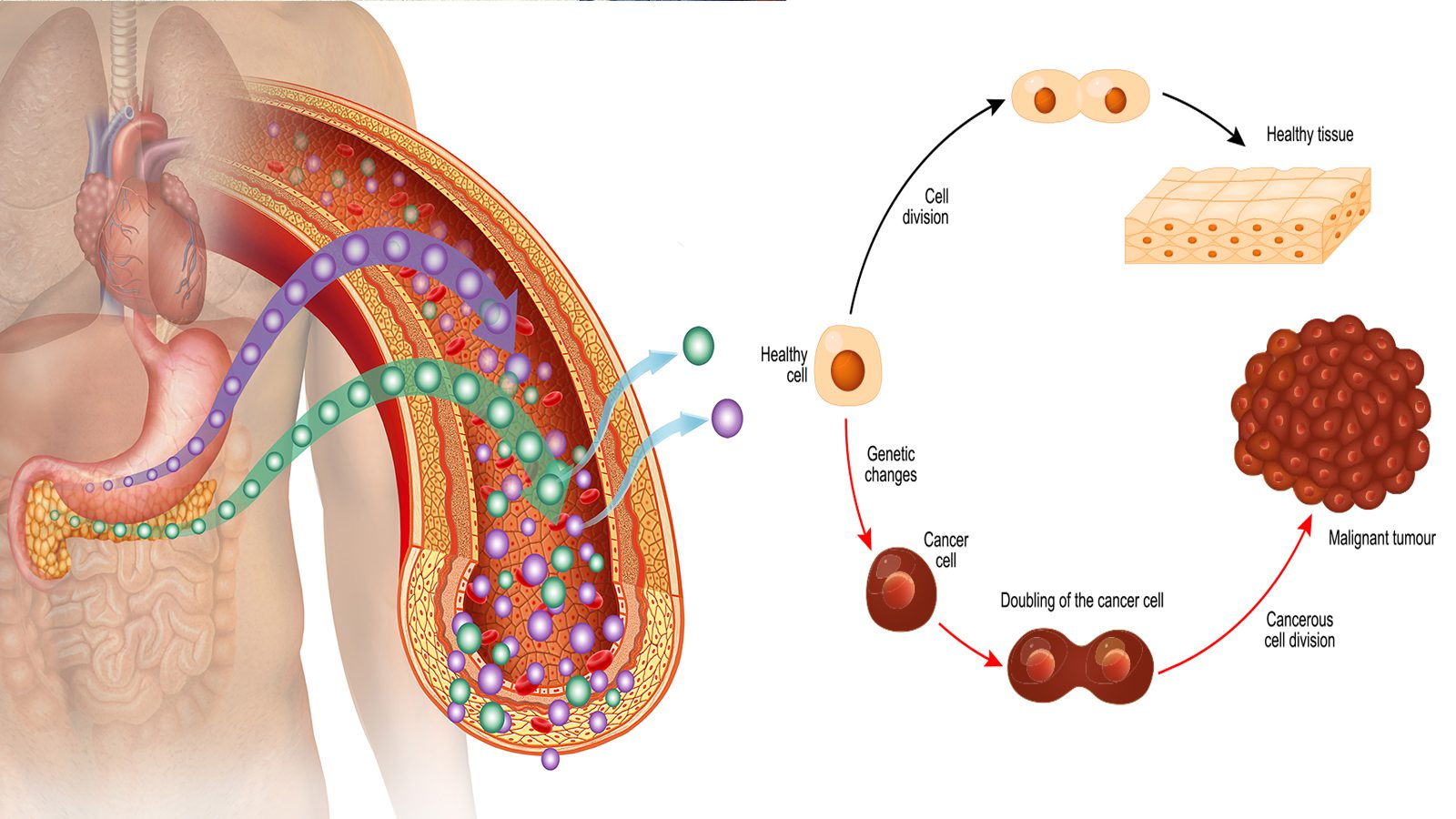A recent study by researchers from the University of Copenhagen revealed a link between insulin resistance and cancer. They found that cancer patients with diabetes exhibited a greater risk of tumor cells multiplying than those without diabetes. Critically, they discovered that metabolic syndrome, a cluster of conditions affecting overall health, increased tumor recurrence rates and reduced survival chances.
Unfortunately, the prevalence of malignant growths and diabetes continues to increase worldwide. Research from the International Diabetes Federation shows that in 2021, almost 11% of the adult population (ages 20-79) had diabetes. The organization estimates this will rise to 1 in 8 people, or 46% of the global population by 2045.
Despite significant advancements in treatment options, tumor growth rates continue to soar due to environmental, genetic, and lifestyle factors. In 2020, the WHO reported that cancer accounted for nearly 10 million deaths (approximately 1 in 6) globally. Almost 20 million people were diagnosed with cancer in the same year, and research shows this number could rise 47% by 2040 to around 28.4 million cases.
While these are sobering statistics, many preventative strategies exist to safeguard your health and mitigate tumor risk. Below, we’ll discuss more about the research that established a connection between diabetes and certain forms of cancer. You’ll also find tips on adopting a healthy lifestyle and managing diabetes to reduce disease risk.
Understanding Diabetes and Cancer
Understanding what causes global health issues like chronic diseases is crucial so you can take preventative actions. For example, medical research shows that many health problems today are attributed to an unhealthy lifestyle. Smoking, drinking excessively, a poor diet, sleep deprivation, a sedentary lifestyle, lack of sunlight, increasing stress, and loneliness significantly contribute to the disease burden.
Genetics and environmental factors like pollution, sunlight exposure, and infections also play a crucial role in tumor formation. In the case of diabetes, common risk factors include urbanization, obesity, an aging population, and a sedentary lifestyle.
#1: The Prevalence of Diabetes
As mentioned earlier, global diabetes statistics show that around 11% of the adult population worldwide had diabetes in 2021. According to the Centers for Disease Control (CDC), common risk factors for diabetes include:
- Overweight/obesity.
- Being 45 years or older.
- Having family members with type 2 diabetes.
- Fewer than three days/week of physical activity
- Having gestational diabetes
- Being African American, Hispanic or Latino, American Indian, or Alaska Native. Some Pacific Islanders and Asian American people may also have a higher risk.
Luckily, most people can significantly improve their health and reduce diabetes risk through lifestyle changes. Exercising more often, eating a natural, balanced diet, managing stress, and consuming less sugar can help. The health implications of untreated diabetes include:
- Kidney damage or failure.
- Eye problems such as blurry vision or even blindness.
- An increased risk of stroke and heart disease.
#2: Understanding Cancer
Oncology research shows that tumor growth occurs when abnormal or damaged cells multiply uncontrollably and spread throughout the body. When detected early, malignant growths respond better to treatment and increase survival odds. Common symptoms of a hidden tumor include being excessively tired for no reason, unexplained weight loss, headaches, pain, swelling, digestive problems, and appetite changes. There are many cancer types, but the most prevalent include breast, lung, colon, prostate, and rectal tumors.
#3: The Connection Between Diabetes and Cancer
According to the study by the University of Copenhagen researchers, comorbidity of diabetes and cancer can cause cells to multiply faster. Since insulin is a growth hormone, it similarly affects tumor cells. Medical research shows that cancer patients don’t respond well to insulin, so it requires more to have a positive impact.
“If you suffer from insulin resistance, your body has to produce more insulin than usual to be able to regulate the blood sugar,” said Lykke Sylow, one of the primary authors of the new study.
Researchers say their next step is to find out the risk correlation between insulin resistance and certain types of tumors. They believe that by identifying those at greater risk of developing insulin resistance, they can treat both conditions simultaneously moving forward.
#4: Potential Mechanisms
Research shows common biological pathways linking diabetes, cancer, and obesity, such as the PI3K-AKT signaling pathway. This governs functions like metabolism, cell survival, growth, and proliferation. It can increase the risk of developing insulin resistance and malignant tumors when it becomes impaired. Chronic inflammation also enhances the likelihood of developing diseases because it causes the immune system to overreact, releasing massive amounts of cortisol. Finally, hyperglycemia (high blood glucose levels) can raise tumor growth and diabetes risk because it increases free radical production and cell mutations.
#5: Implications for Diabetes Patients
Because diabetes increases cancer risk, it’s essential to have regular screenings and take proper medications if you have the condition. Keeping track of your blood sugar, blood pressure, and cholesterol is also necessary. Finally, practicing positive health management by taking preventive measures will help mitigate your risk.
#6: Preventive Strategies
As mentioned earlier, lifestyle changes can help greatly with diabetes control. Dietary changes like reducing your portion sizes, eating whole foods, and lowering your fat, salt, and sugar intake will make a dramatic difference. Also, exercising regularly, practicing stress management techniques like yoga or meditation, and prioritizing sleep will safeguard your health. Following the pillars of health and living more naturally can improve your well-being significantly. In addition, early detection of tumors can increase your odds of survival and help reduce diabetes risk.
#7: Future Research Directions
Researchers hope oncologists will check patients’ blood sugar levels, marking a positive step in preventive medicine. Their future medical research will determine which patients are at the highest risk of developing insulin resistance. They hope this research will pave the way for other scientists to study the impact of insulin resistance treatment on cancer remission rates. Many healthcare innovations will likely occur to improve chronic illnesses and overall well-being.
Final Thoughts on the Connection Between Diabetes and Cancer
As the recent study proves the link between diabetes and tumor growth, it highlights the need for proper treatments and preventive strategies. Both conditions are expected to increase dramatically, so patients should take precautions and continue having regular screenings. The research reveals a significant impact of diabetes on cancer risk since these disorders share a common link: insulin resistance. Therefore, taking preventive measures for diabetes-related cancer risk, such as adopting a healthy lifestyle and scheduling annual doctor’s visits, is essential.

















 Community
Community

